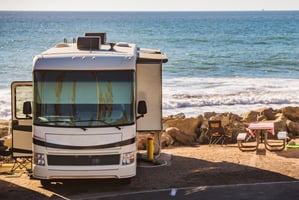In the intricate world of business, protecting your enterprise from unforeseen risks is paramount....
Colorado Homeowners Insurance: What it Covers
Living in Colorado comes with its unique set of challenges and benefits. The diverse landscape, from the Rocky Mountains to the plains, brings both beauty and risks. One of the most crucial aspects of protecting your home in this varied environment is securing the right homeowners insurance. Here’s what you need to know about homeowners insurance in Colorado.
What Does Homeowners Insurance Typically Cover?
Homeowners insurance policies in Colorado generally provide a range of coverages to protect your home and personal belongings. Here’s a breakdown of what these policies typically include:
1. Dwelling Coverage: This covers the structure of your home itself in case of damage from fire, hail, wind, theft, vandalism, and other covered events. Given Colorado's susceptibility to wildfires and hailstorms, this coverage is essential.
2. Other Structures: This part of the policy covers detached structures on your property, such as garages, sheds, and fences. If a windstorm damages your shed, this coverage can help pay for repairs or replacement.
3. Personal Belongings: This protects your furniture, appliances, clothing, and other possessions in case of damage or theft. For instance, if a burglar breaks into your home and steals electronics, personal belongings coverage can help reimburse you for the loss.
4. Additional Living Expenses (ALE): If your home becomes uninhabitable due to a covered event, ALE coverage can help pay for hotel stays or other temporary housing costs. This ensures you have a place to stay while your home is being repaired.
5. Liability Protection: This covers you if someone is injured on your property and decides to sue you. It can also cover legal fees and medical expenses. For example, if a guest slips on your icy walkway and gets injured, liability protection can cover their medical bills and any legal costs if they sue.
6. Medical Payments: This covers medical expenses for someone who is injured on your property, regardless of fault. This can be a small but valuable coverage to handle minor injuries without involving a lawsuit. It's known in the insurance industry as "good faith" coverage.
7. Additional Coverages: Depending on your policy and insurer, you may be able to purchase additional coverage for specific risks like earthquakes, floods, or identity theft. Given Colorado’s potential for natural disasters, considering these additional coverages can be a wise move.
Factors Influencing the Cost of Homeowners Insurance in Colorado
Several factors determine the price of homeowners insurance. Understanding these can help you find the best coverage at a reasonable price:
1. Coverage: The type of coverage you choose and the amount of personal property and liability protection you want will significantly impact your premium. More extensive coverage means higher costs.
2. Location: Your home’s location, including the state, ZIP code, and the area’s claims history, affects insurance costs. Areas prone to wildfires or floods typically have higher premiums.
3. Construction: The materials used to build your house play a role in determining your insurance rates. Homes made with fire-resistant materials may cost less to insure.
4. Age of the House: Newer homes may have lower premiums due to modern building codes and materials, while older homes might be more expensive to insure due to outdated systems or the need for upgrades.
5. Replacement Cost: The replacement cost is the expense of fully rebuilding your home to its original state. This is typically assessed by an appraiser and influences your premium.
6. Home-based Business: Running a business out of your home can increase your premium to cover inventory, equipment, and supplies.
7. Swimming Pool: Owning a swimming pool may increase your liability rate to cover possible injuries, raising your overall premium.
8. Trampoline: Like having a swimming pool, owning a trampoline may increase your liability rate to cover possible injuries, raising your overall premium.
9. Pets: Colorado insurers are no longer allowed to ask what kind of dog breed a consumer has, however, owning a dog may increase your liability rate.
Key Considerations for Homeowners Insurance in Colorado
- Policy Details: The specifics of your coverage will depend on your policy and insurer. Always read your policy carefully to understand what is and isn't covered. If you find gaps in your protection, discuss them with your agent to ensure you’re adequately covered.
- Not Mandatory but Essential: If you don't have a mortgage on your home, homeowners insurance is not mandatory in Colorado, but it is strongly recommended. It protects your financial security in case of a covered event, ensuring you don't face devastating out-of-pocket costs.
- Cost Variation: The cost of homeowners insurance can vary based on factors like the value of your home, your location, claims history, and credit score. Shop around and compare quotes from different insurers to find the best deal.
Conclusion
Homeowners insurance is a vital part of protecting your home and personal belongings in Colorado. By understanding what your policy covers and the factors that influence your insurance rates, you can make informed decisions to safeguard your investment. Whether you're new to homeownership or looking to update your current policy, ensuring you have comprehensive coverage tailored to Colorado's unique risks is essential for peace of mind.



